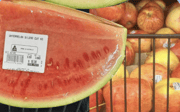
When a Brisbane mum opened her pantry last week expecting to grab pasta for dinner, she discovered something that would put anyone off their tucker—a bag of shell pasta absolutely swarming with weevils.
'Help, I can't deal with weevils,' she posted online, sharing photos that looked like something from a horror film. 'This is the worst I've seen.'
Her shocking discovery has sparked conversations across Queensland and beyond, with dozens of Aussies admitting they're fighting the same battle in their own kitchens. But here's what might surprise you: you've probably eaten a few of these common pantry pests in the past—but don't panic, they won't harm you.
If you're wondering whether those tiny brown specks in your flour are just impurities or something more sinister, you're not alone. Weevils have become one of Australia's most persistent household pests, and understanding how to identify, eliminate, and prevent them could save you hundreds of dollars in wasted food.
In this article
Meet your microscopic house guests
There are over 60,000 species of weevils, ranging from 3mm to 10mm in length—that's smaller than your fingernail, which explains why they often go unnoticed until it's too late. The most common pests we find in Australian pantries are Indian meal moths and grain/rice weevils.
Common Australian pantry weevils
Rice weevil: More commonly found on wheat, barley and processed cereals—your pasta's worst nightmare
Maize weevil: More commonly associated with maize and rice
Granary weevil: Prefers whole grains such as wheat, corn, barley and rice
Indian meal moth larvae: Found in grain products as well as dried fruits, nuts, seeds, biscuits, chocolate and dry dog food
The Brisbane mum's pasta disaster perfectly illustrates how these pests operate. Unlike other insects that might wander into your kitchen looking for crumbs, weevils burrow into grains, lay their eggs inside, and turn your stored food into both a home and a feeding ground for their larvae. It's particularly unnerving because there might be weevils inside your stored food, and you wouldn't know it.
The telltale signs of invasion
Most people don't know they have a pantry pest problem until they open a packet or container of infested food. But there are earlier warning signs if you know what to look for:
The obvious culprits:
- Live or dead beetles crawling in food containers
- Small holes in packaging or grain kernels
- Fine dust inside or outside food containers, which happens as weevils gorge themselves on dry food
The sneaky evidence:
- Thin, brown 'shells' and dead weevils that look like tiny brown particles strewn in food
- Silken threads throughout produce, particularly from pantry moths
- Food that looks darker or has uneven colouring
'Everything goes straight into air-tight containers with screw tops now'
The great pantry purge
When you've confirmed an infestation, it's time for what pest control expert Julian Bracewell calls good housekeeping. Simply search through all food containers and packets in your cupboards and throw out any infested food by sealing it in a bag before binning. Don't forget to check pet foods as well.
The process might seem wasteful, but it's essential. You'll have to dispose of infested produce and find the source of contamination, which could be in another container. Until you find the source, you will continue to have pantry pests.
Your elimination checklist:
- Remove everything from affected areas
- Thoroughly vacuum food-storage areas and clean with hot soapy water, then wipe with white vinegar
- Take everything out of the pantry, vacuum and wipe down all cupboards, shelves and surrounding areas, getting into every corner and crevice
- Thoroughly wash any storage containers
Building your fortress pantry
Prevention is your best defence, and it doesn't require expensive pesticides. Once you've got rid of the infestation, it's relatively easy to prevent reinfestation because most pantry pest infestations are brought into the home already inside the food.
The solution lies in smart storage. Consider placing unopened food that arrives in plastic packages into suitable sealed containers, as some pantry pests can chew through thin plastic wrappers. Glass jars, metal containers, or thick plastic containers with tight-fitting lids are your best friends.
Weevil-proof shopping tips
- Check seals and bag bottoms for tiny holes when buying dry goods
- Check dried foods, cereals and pastas before buying or at least before packing away
- Consider freezing new purchases for 48 hours before storing
- Regularly clean out and check the pantry for infested food
Natural solutions that actually work
You don't need harsh chemicals to keep weevils at bay. Dried bay leaves discourage grain and rice weevil infestation, so place one in each airtight container. Some people swear by putting bay leaves in their cupboards to keep weevils away.
Other natural deterrents mentioned by experts include cloves placed inside storage containers. The key is that you should avoid using chemical treatments as most are not safe to use around food.
Did you know?
Did you know?
Weevils thrive in warm, moist environments, so keeping grain dry (ideally under 14 per cent moisture) can significantly reduce the likelihood of infestations. This is particularly relevant in Australia's humid coastal areas.
Why your climate matters
Australia's warm household conditions make us particularly vulnerable to weevil infestations. As Brisbane pest control expert Julian Bracewell explains, weather always plays a part with insects—they're most active during warmer months for breeding, but they can survive year-round if they have access to food.
Pests such as grain weevils, beetles, borers, and mites thrive in warm, moist environments, making dry storage conditions essential. This explains why the Brisbane resident's problem was particularly severe—Queensland's climate creates ideal conditions for rapid weevil reproduction.
The silver lining
While discovering weevils in your pantry is undoubtedly unpleasant, remember that unlike rats or cockroaches, these pests don't spread disease. They're more of a nuisance and a waste of money than a health threat.
The key is vigilance and smart prevention. Keep food storage areas dry, regularly clean pantry cracks and crevices, and check regularly for reappearance—it may take a while to get rid of them completely.
Have you discovered weevils in your pantry recently? Share your battle stories and successful prevention tips in the comments below—your experience might help a fellow reader avoid their own pasta disaster!
Original Article
https://au.news.yahoo.com/disastrou...mon-pest-invading-aussie-homes-054003877.html
How to get rid of weevils in your kitchen pantry
Cited text: There are, in fact over 60,000 species of weevils and they can range in size from 3mm to 10mm in length.
Excerpt: There are over 60,000 species of weevils ranging from 3mm to 10mm in length
https://www.bhg.com.au/lifestyle/cleaning/how-to-make-your-kitchen-free-of-weevils/
Common pantry insects August 2021, Primefact INT21/133247, First edition
Cited text: The Maize weevil is more commonly associated with maize and rice whereas the Rice weevil · is a well-known pest of dried pasta and more often found on...
Excerpt: Rice weevil is more commonly found on wheat, barley and processed cereals, while Maize weevil associates more with maize and rice
https://www.dpi.nsw.gov.au/__data/assets/pdf_file/0005/1380209/Primefact-Common-Pantry-Insects.pdf
How to get rid of pantry weevils | Airtasker AU
Cited text: It’s also why they are dangerous because there might be weevils inside your stored food, and you wouldn’t know it.
Excerpt: Weevils inside stored food are often undetectable until infestations are advanced
https://www.airtasker.com/au/guides/how-to-eradicate-pantry-weevils/
How to get rid of weevils in your kitchen pantry
Cited text: Dried bay leaves discourage grain and rice weevil infestation, so place one in each airtight container.
Excerpt: Dried bay leaves discourage grain and rice weevil infestation
https://www.bhg.com.au/lifestyle/cleaning/how-to-make-your-kitchen-free-of-weevils/
9 signs you have evil weevils in your pantry! | Little Aussie Communities
Cited text: Some people swear by putting bay leaves in their cupboards to keep weevils away.
Excerpt: Dried bay leaves discourage grain and rice weevil infestation
https://www.littleaussie.com.au/post/signs-of-weevils-in-pantry
PestFacts 12 December 2024—Department of Primary Industries and Regions South Australia—PIRSA
Cited text: Ensure dry conditions: Pests such as grain weevils, beetles, borers, and mites thrive in warm, moist environments.
Excerpt: Pests thrive in warm, moist environments, with optimal storage requiring grain moisture under 14 per cent
https://pir.sa.gov.au/sardi/crop_sc...issues/2024_issues/pestfacts_12_december_2024
9 signs you have evil weevils in your pantry! | Little Aussie Communities
Cited text: Believe it or not you’ve probably eaten a few of these common pantry pests in the past—but don’t panic—they won’t harm you!
Excerpt: you've probably eaten a few of these common pantry pests in the past—but don't panic, they won't harm you
https://www.littleaussie.com.au/post/signs-of-weevils-in-pantry
How to get rid of weevils in your kitchen pantry
Cited text: The most common pests we find in our pantry here in Australia are Indian meal (or weevil) moths and grain/rice weevils.
Excerpt: The most common pests we find in Australian pantries are Indian meal moths and grain/rice weevils
https://www.bhg.com.au/lifestyle/cleaning/how-to-make-your-kitchen-free-of-weevils/
Common pantry insects August 2021, Primefact INT21/133247, First edition
Cited text: The Granary weevil prefers whole grains such as wheat, corn, barley and rice but can ...
Excerpt: Prefers whole grains such as wheat, corn, barley and rice
https://www.dpi.nsw.gov.au/__data/assets/pdf_file/0005/1380209/Primefact-Common-Pantry-Insects.pdf
How to get rid of weevils in your kitchen pantry
Cited text: Indian meal moth larvae can be found in grain products as well as dried fruits, nuts, seed, biscuits, chocolate and dry dog food.
Excerpt: Found in grain products as well as dried fruits, nuts, seeds, biscuits, chocolate and dry dog food
https://www.bhg.com.au/lifestyle/cleaning/how-to-make-your-kitchen-free-of-weevils/
How to get rid of pantry weevils | Airtasker AU
Cited text: They burrow into grains, lay their eggs inside, and turn your stored food into both a home and a feeding ground for their larvae.
Excerpt: weevils burrow into grains, lay their eggs inside, and turn your stored food into both a home and a feeding ground for their larvae
https://www.airtasker.com/au/guides/how-to-eradicate-pantry-weevils/
What's Eating My Food? Stored Product Pests—PestXpert
Cited text: Most people often don’t know they have a pantry pest problem until they open a packet or container of infested food.
Excerpt: Most people don't know they have a pantry pest problem until they open a packet or container of infested food
https://www.pestxpert.com.au/whats-eating-my-food-stored-product-pests/
9 signs you have evil weevils in your pantry! | Little Aussie Communities
Cited text: A fine dust inside or outside of food containers. The powder happens as a weevil gorges itself full of the dry food that it’s managed to get into.
Excerpt: Fine dust inside or outside food containers, which happens as weevils gorge themselves on dry food
https://www.littleaussie.com.au/post/signs-of-weevils-in-pantry
9 signs you have evil weevils in your pantry! | Little Aussie Communities
Cited text: Thin, brown ‘shells’ which are actually insect remains. Dead weevils, stray legs, and moulted skin will look like tiny brown particles strewn in the f...
Excerpt: Thin, brown 'shells' and dead weevils that look like tiny brown particles strewn in food
https://www.littleaussie.com.au/post/signs-of-weevils-in-pantry
How to get rid of weevils in your kitchen pantry
Cited text: In the case of pantry moths, you’ll usually notice silken threads throughout the produce and possibly signs of larvae.
Excerpt: Silken threads throughout produce, particularly from pantry moths
https://www.bhg.com.au/lifestyle/cleaning/how-to-make-your-kitchen-free-of-weevils/
What's Eating My Food? Stored Product Pests—PestXpert
Cited text: You simply need to search through all the food containers and packets in your cupboards and throw out any infested food by placing it in a bag, sealin...
Excerpt: Simply search through all food containers and packets in your cupboards and throw out any infested food by sealing it in a bag before binning.
https://www.pestxpert.com.au/whats-eating-my-food-stored-product-pests/
How to get rid of weevils in your kitchen pantry
Cited text: Unfortunately, you will have to dispose of the produce, and most importantly, find the source of the contamination, which could be in another containe...
Excerpt: You'll have to dispose of infested produce and find the source of contamination, which could be in another container.
https://www.bhg.com.au/lifestyle/cleaning/how-to-make-your-kitchen-free-of-weevils/
9 signs you have evil weevils in your pantry! | Little Aussie Communities
Cited text: Thoroughly vacuum food-storage areas and clean them with hot soapy water—then give them a wipe with white vinegar.
Excerpt: Thoroughly vacuum food-storage areas and clean with hot soapy water, then wipe with white vinegar
https://www.littleaussie.com.au/post/signs-of-weevils-in-pantry
How to get rid of weevils in your kitchen pantry
Cited text: Once you’ve identified and removed the infestation, take everything out of the pantry, give it a vacuum and wipe down all the cupboards, pantry shelve...
Excerpt: Take everything out of the pantry, vacuum and wipe down all cupboards, shelves and surrounding areas, getting into every corner and crevice
https://www.bhg.com.au/lifestyle/cleaning/how-to-make-your-kitchen-free-of-weevils/
9 signs you have evil weevils in your pantry! | Little Aussie Communities
Cited text: Any storage containers should also be thoroughly washed.
Excerpt: Thoroughly wash any storage containers
https://www.littleaussie.com.au/post/signs-of-weevils-in-pantry
What's Eating My Food? Stored Product Pests—PestXpert
Cited text: So, once you’ve got rid of the infestation, it is relatively easy to prevent a reinfestation.
Excerpt: Once you've got rid of the infestation, it's relatively easy to prevent reinfestation
https://www.pestxpert.com.au/whats-eating-my-food-stored-product-pests/
What's Eating My Food? Stored Product Pests—PestXpert
Cited text: More often than not, most pantry pest infestations are brought into the home, already inside the food.
Excerpt: most pantry pest infestations are brought into the home already inside the food
https://www.pestxpert.com.au/whats-eating-my-food-stored-product-pests/
What's Eating My Food? Stored Product Pests—PestXpert
Cited text: Consider placing unopened food that arrives in plastic packages into a suitable sealed container as some pantry pests are also capable of chewing thro...
Excerpt: Consider placing unopened food that arrives in plastic packages into suitable sealed containers, as some pantry pests can chew through thin plastic wrappers
https://www.pestxpert.com.au/whats-eating-my-food-stored-product-pests/
9 signs you have evil weevils in your pantry! | Little Aussie Communities
Cited text: When buying dry goods, check the seals and the bottom of the bags for evidence of weevils such as tiny holes.
Excerpt: Check seals and bag bottoms for tiny holes when buying dry goods
https://www.littleaussie.com.au/post/signs-of-weevils-in-pantry
What's Eating My Food? Stored Product Pests—PestXpert
Cited text: Check any dried foods, cereals and pastas before you buy them or at least before you pack them away.
Excerpt: Check dried foods, cereals and pastas before buying or at least before packing away
https://www.pestxpert.com.au/whats-eating-my-food-stored-product-pests/
What's Eating My Food? Stored Product Pests—PestXpert
Cited text: Regularly clean out and check the pantry for infested food.
Excerpt: Regularly clean out and check the pantry for infested food
https://www.pestxpert.com.au/whats-eating-my-food-stored-product-pests/
9 signs you have evil weevils in your pantry! | Little Aussie Communities
Cited text: You should avoid using chemical treatments as most are not safe to use around food.
Excerpt: you should avoid using chemical treatments as most are not safe to use around food
https://www.littleaussie.com.au/post/signs-of-weevils-in-pantry
PestFacts 12 December 2024—Department of Primary Industries and Regions South Australia—PIRSA
Cited text: Ensure dry conditions: Pests such as grain weevils, beetles, borers, and mites thrive in warm, moist environments. By keeping the grain dry (ideally u...
Excerpt: Weevils thrive in warm, moist environments, so keeping grain dry (ideally under 14 per cent moisture) can significantly reduce the likelihood of infestations
https://pir.sa.gov.au/sardi/crop_sc...issues/2024_issues/pestfacts_12_december_2024
9 signs you have evil weevils in your pantry! | Little Aussie Communities
Cited text: Keep food storage areas dry; weevils are attracted to moisture. Regularly clean pantry cracks, crevices, and shelves. Check regularly for reappearance...
Excerpt: Keep food storage areas dry, regularly clean pantry cracks and crevices, and check regularly for reappearance—it may take a while to get rid of them completely
https://www.littleaussie.com.au/post/signs-of-weevils-in-pantry







